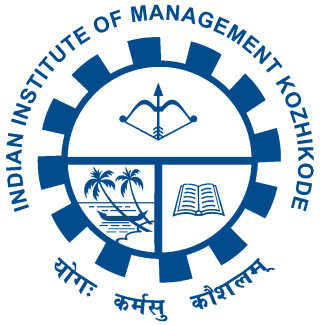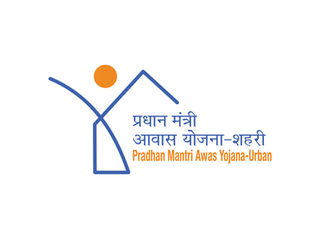A business incubator is an organization that helps startup companies and individual entrepreneurs to develop their businesses by providing a fullscale range of services starting with management training and office space and ending with venture capital financing. The National Business Incubation Association (NBIA) defines business incubators as a catalyst tool for either regional or national economic development. NBIA categorizes its members' incubators by the following five incubator types: academic institutions; non-profit development corporations; for-profit property development ventures; venture capital firms, and a combination of the above.

Indian Institute of Management Kozhikode is an autonomous public business school located in Calicut (Kozhikode), Kerala. The institute, set up in 1996 by the Government of India in collaboration with the State Government of Kerala, is one of the 20 Indian Institutes of Management (IIMs). It was the fifth IIM to be established.

Software Technology Parks of India (STPI) is an S&T autonomous society under Ministry of Electronics and Information Technology (MeitY) engaged in promoting IT/ ITES Industry, Innovation, R&D, Start-ups, Product/ IP creation in the field of emerging technologies like Internet of Things (IoT), Blockchain, Artificial Intelligence (AI), Machine Learning (ML), Computer Vision, Robotics, Augmented & Virtual Reality, Animation & Visual effect (AVGC), Data Science & Analytics for various domains like FinTech, Agritech, MedTech, Autonomous Connected Electric & Shared(ACES) Mobility, ESDM, Cyber Security, Gaming, Industry 4.0, Drone, Efficiency Augmentation, etc. STPI was established in 1991 by the Indian Ministry of Electronics and Information Technology (MeitY) with the objective of encouraging, promoting and boosting the export of software from India. STPI Headquarters is located in New Delhi with over 60+ Centres spread across the country.

National Bank for Agriculture and Rural Development (NABARD) is an apex regulatory body for overall regulation of regional rural banks and apex cooperative banks in India. It is under the jurisdiction of Ministry of Finance, Government of India. The bank has been entrusted with "matters concerning policy, planning, and operations in the field of credit for agriculture and other economic activities in rural areas in India". NABARD is active in developing and implementing financial inclusion.
Social security in India includes a variety of statutory insurances and social grant schemes bundled into a formerly complex and fragmented system run by the Indian government at the federal and the state level. The Directive Principles of State Policy, enshrined in Part IV of the Indian Constitution reflects that India is a welfare state. Food security to all Indians are guaranteed under the National Food Security Act, 2013 where the government provides highly subsidised food grains or a food security allowance to economically vulnerable people. The system has since been universalised with the passing of The Code on Social Security, 2020. These cover most of the Indian population with social protection in various situations in their lives.
The information technology industry in India comprises information technology services and business process outsourcing. The share of the IT-BPM sector in the GDP of India is 7.4% in FY 2022. The IT and BPM industries' revenue is estimated at US$ 245 billion in FY 2023. The domestic revenue of the IT industry is estimated at $51 billion, and export revenue is estimated at $194 billion in FY 2023. The IT–BPM sector overall employs 5.4 million people as of March 2023. In December 2022, Union Minister of State for Electronics and IT Rajeev Chandrasekhar, in a written reply to a question in Rajya Sabha informed that IT units registered with state-run Software Technology Parks of India (STPI) and Special Economic Zones have exported software worth Rs 11.59 lakh crore in 2021-22.

The Economy of Andhra Pradesh is primarily dependent on agriculture, which directly and indirectly employs 62% of the population. GSDP as per the first revised estimate, for the year 2022-23 is ₹13,17,728 crore. The state is ranked 1st in the country for the year 2021-22 in terms of the Gross State Domestic Product (GSDP) growth at constant prices with growth rate of 11.43%.
A technology business incubator is a type of business incubator focused on organizations that help startup companies and individual entrepreneurs which use modern technologies as the primary means of innovation to develop their businesses by providing a range of services, including training, brokering and financing. In several countries, including India, China, and the Philippines there have been government initiatives to support TBIs. Organizations under the title of technology business incubator often receive funding or other forms of support from the national government.
IFCI, previously Industrial Finance Corporation of India, is a development finance institution under the ownership of Ministry of Finance, Government of India. Established in 1948 as a statutory corporation, IFCI is currently a company listed on BSE and NSE. IFCI has seven subsidiaries and one associate.

The 2015 Union budget of India refers to 2015–2016 Union budget of India. The beginning of the budget printing began on 19 February 2015 with the traditional halwa ceremony. From 20 February until the presentation of budget about 100 government employees remained locked up in the North Block of the Secretariat Building, New Delhi, which houses the budget printing press, to maintain secrecy. The budget was presented on 28 February by Finance Minister Arun Jaitley.

Pradhan Mantri Awas Yojana (PMAY) is a credit-linked subsidy scheme by the Government of India to facilitate access to affordable housing for the low and moderate-income residents of the country. It envisaged a target of building 2 crore (20 million) affordable houses by 31 March 2022. It has two components: Pradhan Mantri Awas Yojana(Urban) (PMAY-U) for the urban poor and Pradhan Mantri Awaas Yojana (Gramin) (PMAY-G and also PMAY-R) for the rural poor, the former administered by Ministry of Housing and Urban Affairs and the latter by Ministry of Rural Development. This scheme converges with other schemes to ensure houses have a toilet, Saubhagya Scheme for universal electricity connection, Ujjwala Yojana LPG connection, access to drinking water and Jan Dhan banking facilities, etc.

Stand-Up India was launched by the Government of India on 5 April 2016 to support entrepreneurship among women and SC & ST communities. Stand Up India Loan Scheme is a government initiative launched by the Government of India in 2016 to promote entrepreneurship and facilitate bank loans to Scheduled Caste (SC) / Scheduled Tribe (ST) and women entrepreneurs in the country. The scheme aims to provide loans between Rs.10 lakhs and Rs.1 crore for setting up a greenfield enterprise in manufacturing, trading or services sector.

Pradhan Mantri Ujjwala Yojana was launched by Prime Minister of India Narendra Modi on 1 May 2016 to distribute 50 million LPG connections to women of Below Poverty Line (BPL) families. A budgetary allocation of ₹80 billion (US$1.0 billion) was made for the scheme. The scheme was replaced by the Ujjwala Yojana 2.0 in 2021.

Priyank Mallikarjun Kharge is an Indian politician from Indian National Congress and Serving as the Cabinet Minister in the Government of Karnataka. He is 3 time Member of Legislative Assembly (MLA) from Chittapur Constituency in Kalaburagi District of Karnataka.
ANSR is a global company that helps organizations build, manage and scale global teams through Global Capability Centers (GCCs), also known as Captive Centers. ANSR was established in 2004 by Lalit Ahuja. Since its inception, ANSR has established over 100 GCCs aggregating to over 100k enterprise talent.

The Pradhan Mantri Matsya Sampada Yojana (PMMSY)(http://pmmsy.dof.gov.in/) is an initiative launched by the Government of India to establish a comprehensive framework and reduce infrastructural gaps in the fisheries sector. The scheme was announced by the Finance Minister, Nirmala Sitharaman during her speech in the parliament of India while presenting the Union budget for 2019–20 on 5 July 2019. The government intends to place India in the first place in Fish production and processing by implementing Neeli Kranti (transl. Blue Revolution). This scheme is in line with governments aim to double the farmers' income by 2022–23.
The Department of Agriculture and Farmers' Welfare (DA&FW) is one of the three constituent department of Ministry of Agriculture and Farmers' Welfare, the other two being Department of Agriculture Research and Education (DARE) and Department of Animal Husbandry and Dairying. The Department is headed by Minister of Agriculture and Farmers' Welfare.

CIIE.CO is an Indian startup accelerator and incubator that supports early-stage startups located at IIM Ahmedabad in Ahmedabad, India. It was founded in 2002 to promote innovation and entrepreneurship in India. It is a Center of excellence set up at Indian Institute of Management Ahmedabad with support from the Government of India's Department of Science and Technology and the Government of Gujarat.

The Department of Horticulture, Government of Punjab is the apex body for horticultural development in the state of Punjab, India. It works for increasing the land under horticultural crops, providing quality planting material, providing technical know-how to the farmers, reducing post harvest losses, etc.











